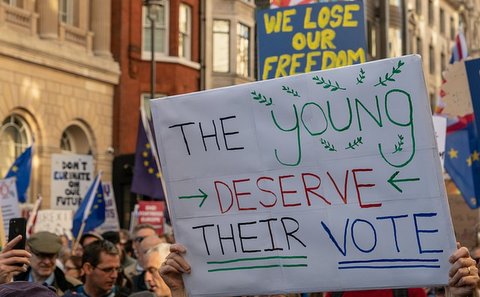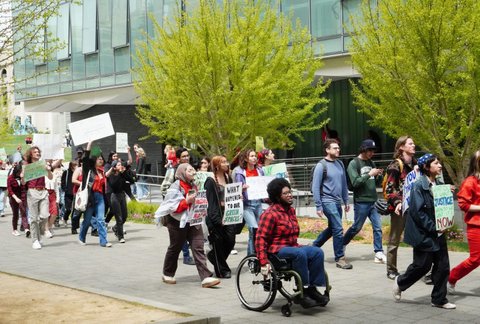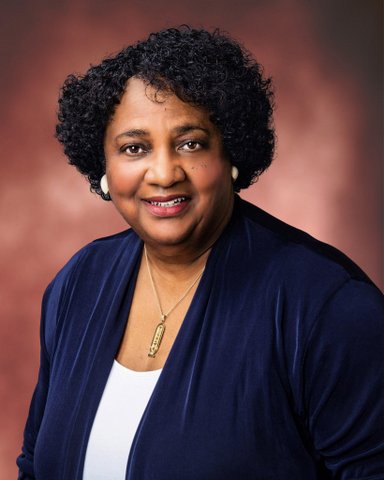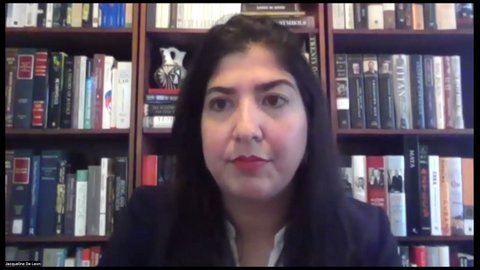
29 Dec Survey of Young People in Bay Area Shows Diverse Concerns, Some Apathy

(User:Colin / Wikimedia Commons / CC BY-SA 4.0)
By Joshua Picazo
Bay City News
Bay City News surveyed 213 students and young people across seven Bay Area counties this year to get a gauge of where they see themselves in the political process.
What we found were diverse views on what matters to young people between the ages of 18 and 35, as well as differences in how engaged they are. There were also high levels of voter registration amongst all groups.
So what issues do they value? What form of voting do they prefer? Do they feel they are well-informed? And where do they get their information?
Well, that depends on who you ask.
What percentage of young Bay Area residents are voting?
While a majority of people in all groups surveyed were registered to vote, the survey revealed significant differences in actual voting behavior. Nearly 25% of overall respondents hadn’t yet voted. However, for Latinx individuals, this number was much higher, at 75%. In contrast, 10% of white participants had never voted. Asian Americans/Pacific Islanders and African American communities also had relatively high percentages of non-voters, with around 40% and 36% respectively.
“I will say that overall, generation after generation, when people are young, they are less invested in what is going on around them and less likely to vote,” said Elizabeth Bergman, professor of political science at California State University, East Bay.
“Turnout among the 18-28-year-olds has been poor for decades. As people age, the turnout tends to improve as people have more of a stake in elections. For example, those 60 and older vote at the highest rate and for good reason, they are intent on preserving benefits like Social Security, Medicare, low tax rates, etc,” Bergman said.
She also noted that voting taking place on Tuesdays may be an additional barrier placed in front of young voters.
For those who aren’t voting, lack of information or time is a major factor
A common response for those who were not registered to vote was that they either did not have the time or didn’t feel informed enough.
Of those who didn’t register to vote, 33% rated their level of being informed at 1 or 2 on a scale of 1-5, with 5 being the most informed. In contrast, only 5% of registered voters rated their level of being informed as 1 or 2. This suggests that getting young people to feel they are adequately informed might play a role in increasing engagement.
“I don’t always understand what’s going on, because it doesn’t catch my attention right away, so it can be difficult to keep up with everything that is happening,” said Kathia Noriega, a Latinx journalism student at San Francisco State University who is registered to vote.
“I haven’t voted before, but I think I should start, because it’s something that benefits our communities and our country,” said Noriega. “We should be actively trying to progress, and I think voting is a great way to do so in order to make ourselves feel seen.”
“A lot of people, something like 20% in every election, fully intend to vote, but life gets in the way, e.g. they are busy, sick, flat tire, bad weather, etc.,” said Bergman.
This was in line with what many other respondents said.
“I had work and school on Election Day last year and never got around to mailing in my ballot,” said Neda Saleh, a political science major at University of California, Berkeley.
Saleh said that despite having a high level of political engagement, which has led her to working with organizations such as Action Corps that promote humanitarian causes, she did not vote in the most recent election.
>>>Read: Importance of Local Elections Motivates Young Voters to Become Politically Active
There are also many other reasons young people do not have high voting rates, such as being focused on education, relationships, or other extracurricular work, or even the legal inability, according to Laura Stoker, former professor in the Department of Political Science at UC Berkeley.
“You might be registered in one state but going to school in another state and then that gets complicated,” she said. “You can’t register where you can’t vote but you have to vote where you’re registered and so on. So, there’s lots of sort of registration hurdles that young people face.”
Indeed, several people surveyed said they were not able to register in California, as they were not legal residents.
Preferred method of voting
Both young Democrats and Republicans mostly preferred voting at polling stations, however 42% of Democrats said mail-in or drop-off ballots were their preference, compared to just 25% of Republicans. About 47% of third party or independent voters also preferred mail-in or drop-off.
Significant disparities in voting methods were observed when considering race or ethnicity. Among Latinx respondents, 56% primarily preferred mail-in voting, while only 16% of white participants shared this preference, with 58% of white voters favoring polling stations. Asian American and Pacific Islanders participants were evenly divided between favoring mail-in and in-person voting, with about 43% for each form of voting. African Americans showed a preference for ballot drop-offs and polling stations, with 74% favoring these methods.
How are they staying informed?
An overwhelming majority (80%) of participants surveyed said social media and online sources are the way they gather news information. Slightly more than one in eight respondents used only social media to keep in touch with current news. Close to half of respondents listed television news as one way they stay informed, and just 24% listed newspapers.
>>>Commentary: Social Media’s Influence on the News: Don’t Believe Everything You Read on the Internet
“People are still far more likely to be politically influenced by their primary institutions — by far the biggest influence is family, then friends, religion etc. — and physical human connections than media content,” said Grant Kien, a Cal State East Bay professor of communications.
He added that despite the staying power of social media usage, education is the best way to get young voters more civically engaged, despite what he says is the politicization of curriculum in many states.
Relatedly, several respondents said they feel they would be more engaged if town hall meetings and voting were more accessible online.
“Having a digitally mailed ballot with key information on all the issues (would be useful),” Saleh said.
Issues that matter to young voters
Education:
Nearly all young people surveyed (80%), regardless of race or political affiliation, viewed education as one of their highest priorities. Each racial demographic had at least 75% of participants rate education as either one of the “most” or “very” important issues in deciding how they voted.
Climate Change:
Opinions on climate change varied significantly. While the majority acknowledged its importance to some extent, it garnered the highest percentage of “not at all important” when participants were asked what issues most interest them. Latinx participants stood out with 72% considering it “most” or “very important.” Similarly, 60% of African Americans agreed. This is in contrast to 26% of white students expressing the same level of importance.
Crime:
Seventy percent of those surveyed identified crime as either one of the “most” important or a “very” important issue. Breaking it down, 86% of Black respondents considered it “most” or “very” important, along with 80% of AAPI, 60% of white, and 75% of Latinx respondents.
Moreover, voters in Alameda County were more inclined to view crime as one of the most important issues compared to voters in other counties.
Healthcare:
In the responses, African American participants demonstrated a higher prioritization of health care compared to other groups, with 86% considering it “most” or “very” important — 11% higher than the overall average of all respondents.
Race Relations:
The issue of race relations also saw a major gap in importance placed by different demographics. Thirty-six percent of young white people surveyed said race relations was an issue “most” or “very important” to them compared to 100% of African American and 80% of Latinx surveyed and 61% of Asian American and Pacific Islander respondents.
Immigration:
Immigration was of particular interest to Latinx voters, with 88% surveyed prioritizing this issue. White participants replied with 54%, saying it was very or one of the most important issues to them. Black and AAPI participants concurred with that sentiment at 45% and 60%, respectively.
Voting Rights:
Voting rights also emerged as a significant concern for young people of color, with 86% of African Americans surveyed considering it one of the most important issues. In comparison, 82% of Latinx participants, 80% of AAPI participants, and 66% of white participants shared this perspective.
>>>Read: Attacks on Voting Rights Evoke Jim Crow Era
Foreign Affairs:
While foreign affairs polled at a lower rate of importance (66%) compared to other issues, students such as Saleh said it was a highly motivational factor in voting, citing her opposition to U.S. policies in Yemen and the Middle East.
Jobs, Economy and Wealth Distribution:
African Americans exhibited the highest level of concern for jobs and the economy, with 92% indicating it was a “most” or “very” important issue. In contrast, 73% of white respondents shared the same sentiment. For Asian American Pacific Islander and Latinx respondents, 80% and 81%, respectively, expressed agreement.
Lastly, a substantial disparity emerged between white respondents and minority groups regarding the importance of wealth distribution. Sixty-three percent of white respondents regarded this issue as highly important, whereas 80% of minorities shared this perspective.
Copyright © 2023 Bay City News, Inc. All rights reserved. Republication, rebroadcast or redistribution without the express written consent of Bay City News, Inc. is prohibited. Bay City News is a 24/7 news service covering the greater Bay Area.






No Comments